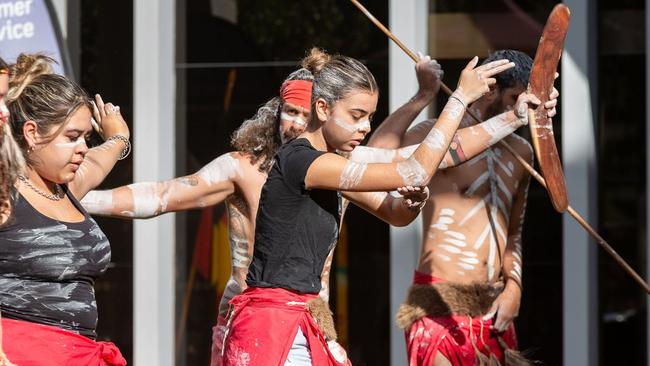Indigenous knowledge needs to be recognised and valued

This year’s theme – Keep the Fire Burning! Blak, Loud & Proud – honours the enduring strength and vitality of First Nations culture, with fire a symbol of connection to Country, to each other, and to the rich tapestry of traditions that define First Nations peoples.
Growing up, I had no idea I was on the lands of the Whadjuk people in Fremantle, Western Australia, nor knew anything of their amazing history and knowledges from divining water, star navigation, detoxifying native foods to health remedies and therapeutics leveraging the unique properties of plants.
This lack of knowledge in my younger years saddens me now, and I suspect my experience is shared by many Australians. But we can either look back and commiserate, or acknowledge that we need to do better, look forward, and take action. I prefer the latter.
Around the world and throughout history humans have hypothesised, experimented, made empirical observations, gathered evidence, recognised patterns, verified through repetition, made inferences and predictions, and developed branches of knowledge to make sense of the world.
Australia’s First Peoples did this – building deep knowledge of this country.
With the forthcoming release of the government’s national science and research priorities, a strategic examination of R&D funding and a future made in Australia agenda, we have a crucial opportunity to reflect on the profound significance of Indigenous knowledge systems and their invaluable contributions to science and research.
Australia is home to the world’s oldest continuous living cultures, which possess vast scientific, technological, and engineering knowledge embedded in Aboriginal and Torres Strait Islander languages and cultures.
Western science and First Nations science have different pathways to discovery, but it is important to bring these two ways of thinking together and be open to being informed by First Nations perspectives and history, rather than viewing them as separate.
In our journey towards a culturally confident and reconciled nation, we must elevate and invest in Indigenous knowledges on science, technology, and innovation. This not only supports Indigenous researchers but also enriches our collective understanding and fosters genuine partnerships that are co-designed and co-delivered.
Indigenous knowledges offer unique insights into environmental stewardship, health, community wellbeing and more. They have the potential to transform our approaches to sustainability, resilience, and innovation, driving advancements that benefit all Australians.
By bringing all our knowledge together, we create opportunities at multiple levels to enhance interconnectedness, promote cultural capability, make new critical discoveries, and support a more inclusive and holistic approach to research. Let’s champion this and make a lasting impact on our national science and research landscape.
There are some incredibly inspiring Indigenous-led organisations and First Nations science and knowledge leaders. In my role leading Science & Technology Australia, I have the privilege of working with many of those through the organisation’s board, committee and membership.
But even with their great work they don’t have the time, energy or resources to do it alone. We need a step change in our collective focus, engagement and investment.
I’m proud that STA has committed to a connection of Indigenous knowledge and western science knowledge in our strategic policy work, but what else do we need in Australia? There are some steps and investments we can take together to help on this journey.
Those steps include investing in understanding the connection between Indigenous and non-Indigenous knowledges in STEM, improving support for First Nations intellectual property, boosting investment in STEM pathways for First Nations people, and investing in teacher professional training that connects the teaching and learning of STEM with Indigenous knowledges.
Australia should also invest in ongoing operational funding for the crucially important National Indigenous STEM Professionals Network (NISTEMPN), expand research funding programs to First Nations researchers, and develop and implement the Universities Accord-recommended research framework to strengthen First Nations research and research leadership.
Finally, increasing investment in First Nations-led STEM organisations to improve STEM education and experiences for First Nations people will create career pathways that support identity, culture and cultural obligations to care for Country.
These steps won’t just lead to improving how we value Indigenous knowledges, they will increase economic opportunities and self-determination for Aboriginal and Torres Strait Islander peoples.
During NAIDOC Week and beyond, let’s commit to advancing Indigenous knowledges and researchers, ensuring that their contributions are recognised and valued. Together, we can build a future that honours our shared history and leverages the strengths of all knowledge for the benefit of society.
Ryan Winn is the chief executive officer of Science & Technology Australia.



It’s NAIDOC Week – a chance to recognise and celebrate the rich history, culture and achievements of Aboriginal and Torres Strait Islander peoples – the country’s first scientists.